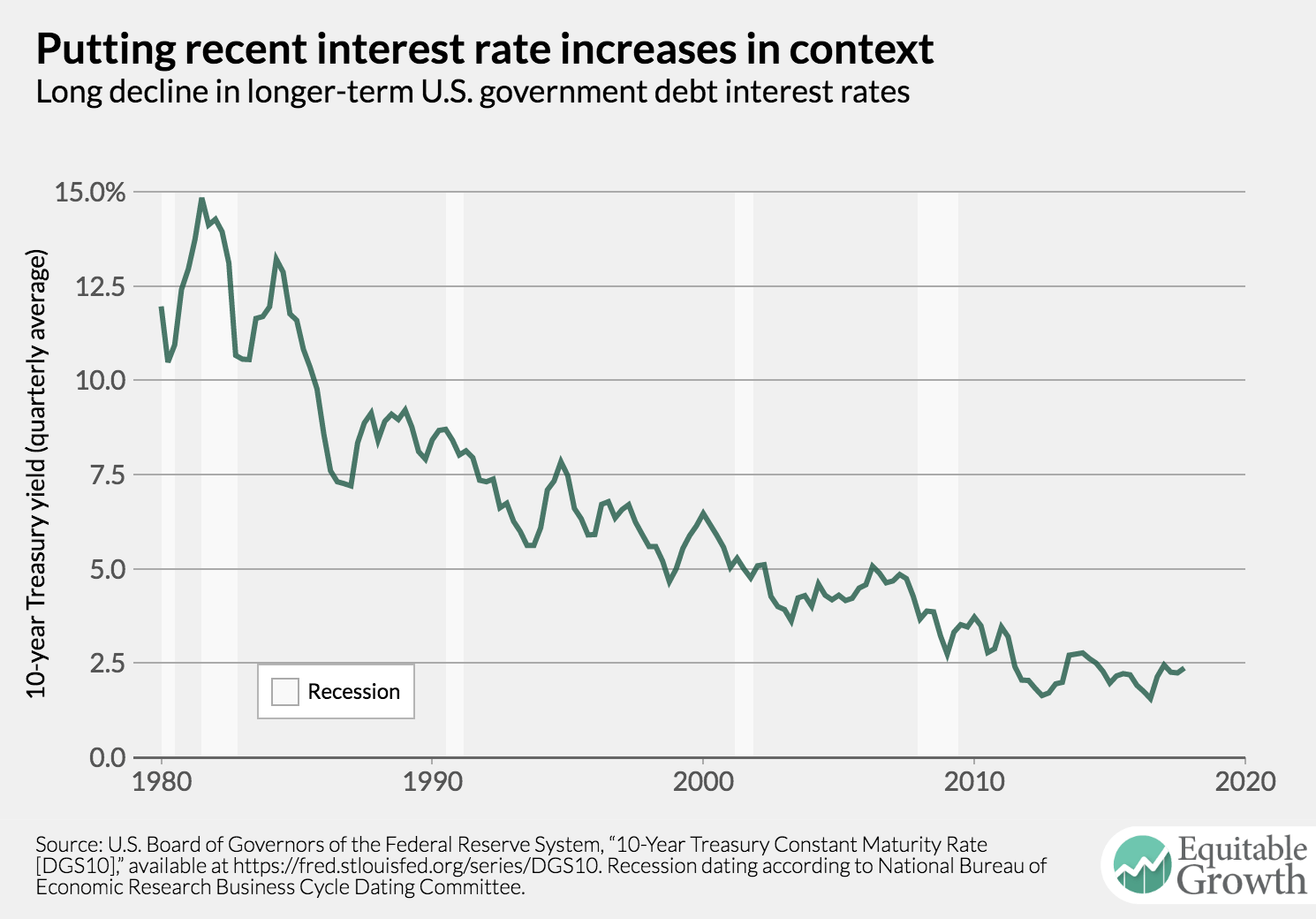Weekend reading: “diminishing demand” edition
This is a weekly post we publish on Fridays with links to articles that touch on economic inequality and growth. The first section is a round-up of what Equitable Growth published this week and the second is the work we’re highlighting from elsewhere. We won’t be the first to share these articles, but we hope by taking a look back at the whole week, we can put them in context.
Equitable Growth round-up
The latest release in the Equitable Growth Working Paper series looks at how high levels of income inequality might affect aggregate demand. Adrien Auclert of Stanford University and Matthew Rognlie of Northwestern University summarize their research while another post digs into what their findings might mean for the future of interest rates.
The U.S. Supreme Court next week will hear oral arguments in Ohio v. American Express, a case you likely haven’t heard of. But as Michael Kades argues, how the court rules on the case could have a major impact on the future of antitrust policy.
Check out the slides from a presentation Greg Leiserson gave this week on the recently passed Tax Cuts and Jobs Act.
Links from around the web
The Family and Medical Leave Act was signed into law 25 years ago, notes former U.S. Treasury Secretary Robert E. Rubin, but “while the FMLA was a landmark achievement, it doesn’t go far enough. American workers and businesses need a universal paid leave program.” [wapo]
Leah Fessler interviews Harvard University economist Claudia Goldin about Goldin’s research into the origins of the gender pay gap and her own career. [quartz]
Marcus Casey and Bradley Hardy—fellows at The Brookings Institution—point out that while the black unemployment rate is having its time in the national spotlight as it hit historical lows recently, the economic well-being of any community can’t be determined by just the unemployment rate. [brookings]
Should employers in the United States be able to ask a prospective hire about her previous salaries? Several states and cities have passed laws recently banning the practice. Noam Scheiber looks into how such policies might affect hiring. [nyt]
The rate at which U.S. workers participated in the labor force at one time far outstretched the participation rate of workers in the United Kingdom. But since the late 1990s, the participation rate in the United States has dropped sharply while and the U.K. rate has risen. What happened? Ernie Tedeschi dives into the data. [medium]
Friday figure

Figure is from “How income inequality may affect U.S. interest rates,” by Nick Bunker

